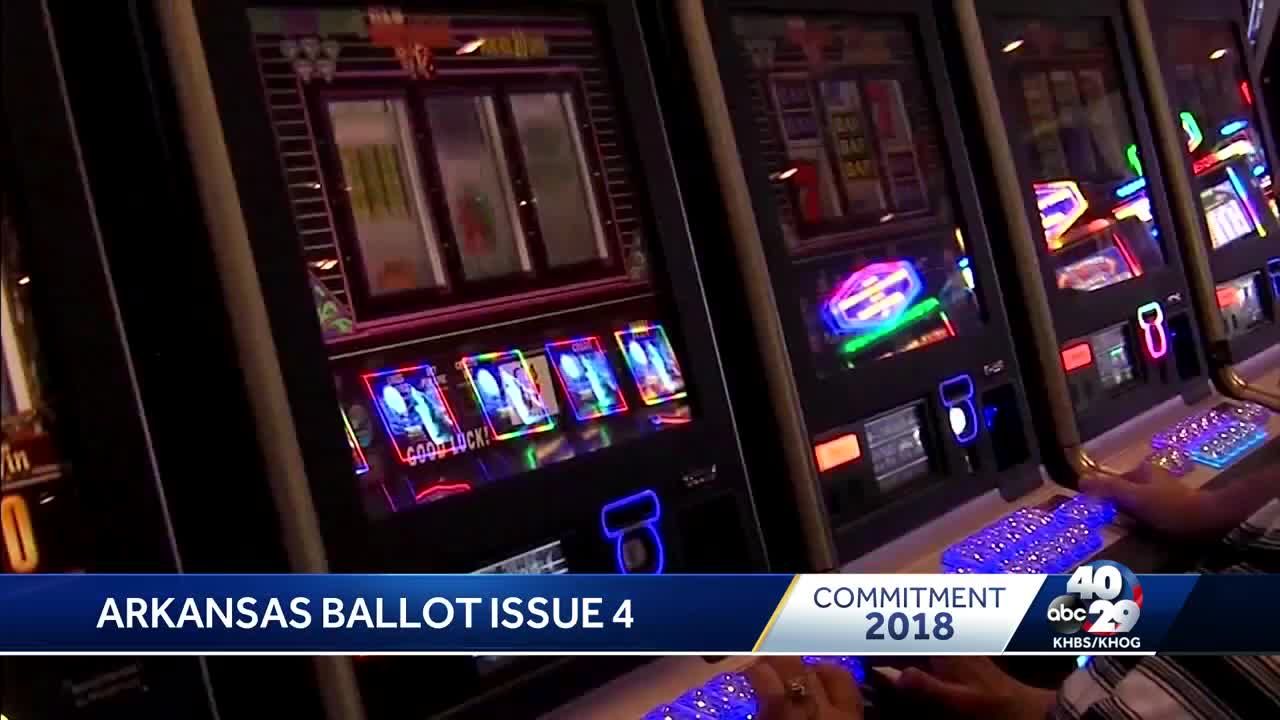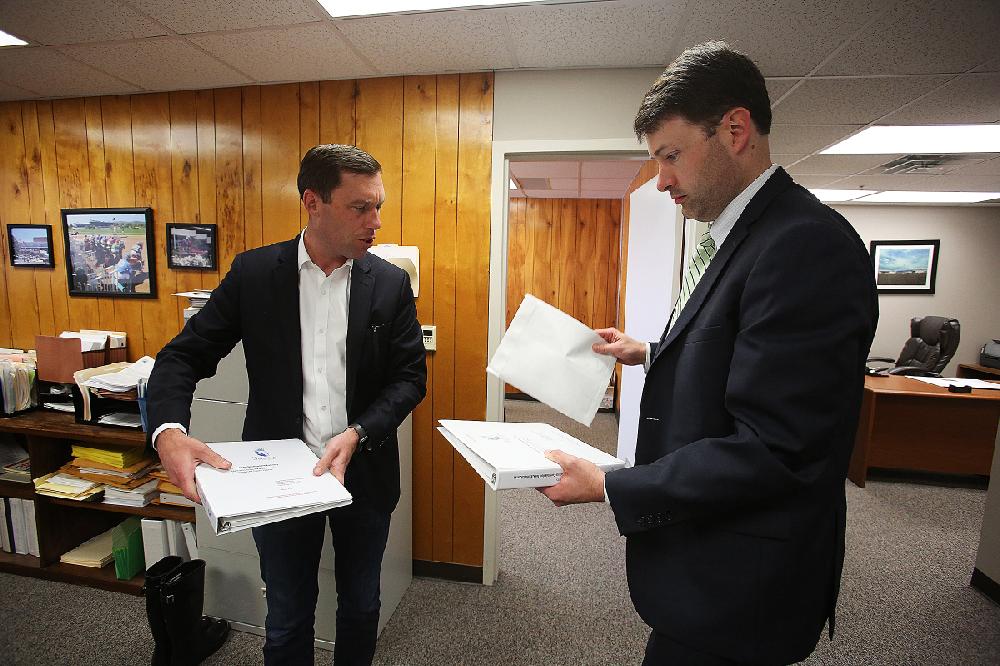Casino Bill In Arkansas
Posted By admin On 01/04/22Voters across Arkansas will decide if casinos can be built in Boone, Miller, and Washington counties. It was announced on Thursday that the measure, Issue #5, will be on the state ballot because. Gambling in Arkansas Casinos were prohibited in Arkansas in 2016. Issue 5 would have authorized three casinos in the state. Voters rejected previous attempts to establish casinos. Johnson County casino bill faces pushback by House committee We know there will be casinos in Jefferson County and at Oaklawn and Southland, but trying to bring in that fourth casino is a gamble.
Arkansas does not have a legalized casino industry but that could very well change as legislators are looking at introducing a new bill that would allow casino gambling to take place. Currently, Arkansas only permits horse and dog racing.
Now for the first time in 18 years, residents will vote on a proposed amendment that would allow casino gambling throughout the state.
The legalization of gambling in the state is expected to bring in a significant amount of revenue in the form of gaming licenses, gambling taxes, employment opportunities and a boost to local tourism.
If voters approve the constitutional amendment, changes will take effect on Nov 14.
KARK 4 News
Gambling Levy
Casino Bill In Arkansas Zip
The Arkansas Casino Gambling Amendment of 2018 would impose a 13 per cent tax levy on the first $150 million of an operator’s net casino gambling receipts. Receipts of more than $150,000,001 will be levied a 20 per cent tax.

State general revenue would also get a 55 per cent share of the net casino gambling tax receipts – the Racing Commission gets 17.5 per cent for live racing fund, while 8 per cent goes to the county where the casino is located. If the casino is located in a city, that city will get 19.5 per cent of the gambling tax receipts.
Arkansas Racing Commission to Oversee Casinos
Casino Bill In Arkansas Obituaries
Casino licenses would come under the remit of the Arkansas Racing Commission. The body would begin to perform its duties and implement rules no later than 120 days following Nov 14 when the new laws come into effect. Operators may submit their license applications by June 1, 2019. The proposed amendment would also not allow any individual, partnership or corporation to hold multiple licenses.
Under the new regulations, the General Assembly would be required to enact relevant laws and allocate enough money so that the Racing Commission could fulfil its duties. The new legislation should take effect by June 30 of 2019.
The commission must also provide at least $200,000 to treat compulsive gambling disorder, as well as initiate educational programs to deal with the issue which will be handled by the Department of Human Services.
Doug is our American guru, he will be keeping us informed with latest tournament news and goings on in the USA

Senate Bill 669, also known by the more palatable name of the Athletic Event Wagering Bill 2019, has officially hit a seemingly insurmountable wall and failed to become law. The bill sponsored by Democratic senator Will Bond, had it actually come to pass, would have legalized sports betting through online platforms in Arkansas, expanding the now growing gambling industry in said state and loosening some of the well-known restrictions that exist in the American casino industry.

Athletic Event Wagering Bill 2019
Arkansas and gambling have had a tumultuous relationship in the past, with the state being seen in the past as a potential location for gaming and gambling facilities that could rival even those in the gambling capitals of the United States of America and, therefore, the world. However, gambling was initially banned in Arkansas, squandering said potential, and progress towards rectifying this has been a tad slow.
Live gambling in Arkansas, however, has since become legal thanks to a recent referendum, with locales like The Oaklawn Racing & Gaming casino in Garland County and the Southland Gaming and Racing casino in Crittenden County now operating legally. Additionally, activities such as raffle and bingo are currently permitted in Arkansas, and so are race tracks and a state lottery.
The bill, nonetheless, aimed to provide the southern state with an edge regarding online gambling, going beyond brick and mortar casinos and being one of the few leading the charge in this new enterprise in the gambling world (an advantage presently limited to New Jersey, Pennsylvania, and West Virginia).
Exploring the fundamental details of the bill, you would find that the document in question was described more specifically as: “An act permitting licensed on-site and electronic wagering on athletic events by certain entities”. Reading further into the bill, the exact definition it provides on what constitutes an “athletic event” may undoubtedly be quite interesting to the reader.
Wagering on games, contents and other activities performed by many reputable professional sports entities, like the NFL, the NBA and the NHL (along with many others) would have been allowed under this new law, and so would have been activities sanctioned by specific smaller amateur organizations. On the other end of the spectrum, sporting events sanctioned by the professional wrestling company World Wrestling Entertainment and by the Special Olympics would have been expressly not considered athletic events, and therefore, would not have been applicable for online wagers and bets.

Reasons for Its Failure
The Athletic Event Wagering Bill 2019 would have, in theory, stopped sports wagers in the black market, as players would have had no need to reach out to these illegal circles with an easier and legal alternative. Why, then, did this bill fail to be approved the Senate? The answer is actually quite simple: the existence of integrity fees.
Integrity fees are commissions, or taxes for the more cynical among us, that sports betting operators would have to pay to sports governing bodies in order to conduct their business, popularized by organizations like the previously mentioned National Basketball Association and Major League Baseball, their largest proponents.
Said governing organizations often demand legislation to include these fees and justify them by stating that said cost is necessary to maintain sports betting as transparent, fair and free of corruption as possible. These fees have been standard practice in other countries already, and they seem to be here to stay in the US.
Casino Bill In Arkansas Razorback
Regarding the particular case Senate Bill 669, sports betting operators would have had to invest a rate of 1% of their income on said integrity fees, and combining these with both the state taxation of 12.5% of offline sports betting, and the 13.5% of taxation of betting of the online variety doomed this bill to be quite certainly dead on arrival.
Casino Bill In Arkansas Map
In essence, lawmakers believed that all these fees and taxes would irrevocably make the bill considerably unpopular with betting operators and, furthermore, drive the public towards the more attractive black market that they had originally intended to help bettors avoid. SB 669 has then been rejected without a specific date of being reconsidered for legislation, if any.